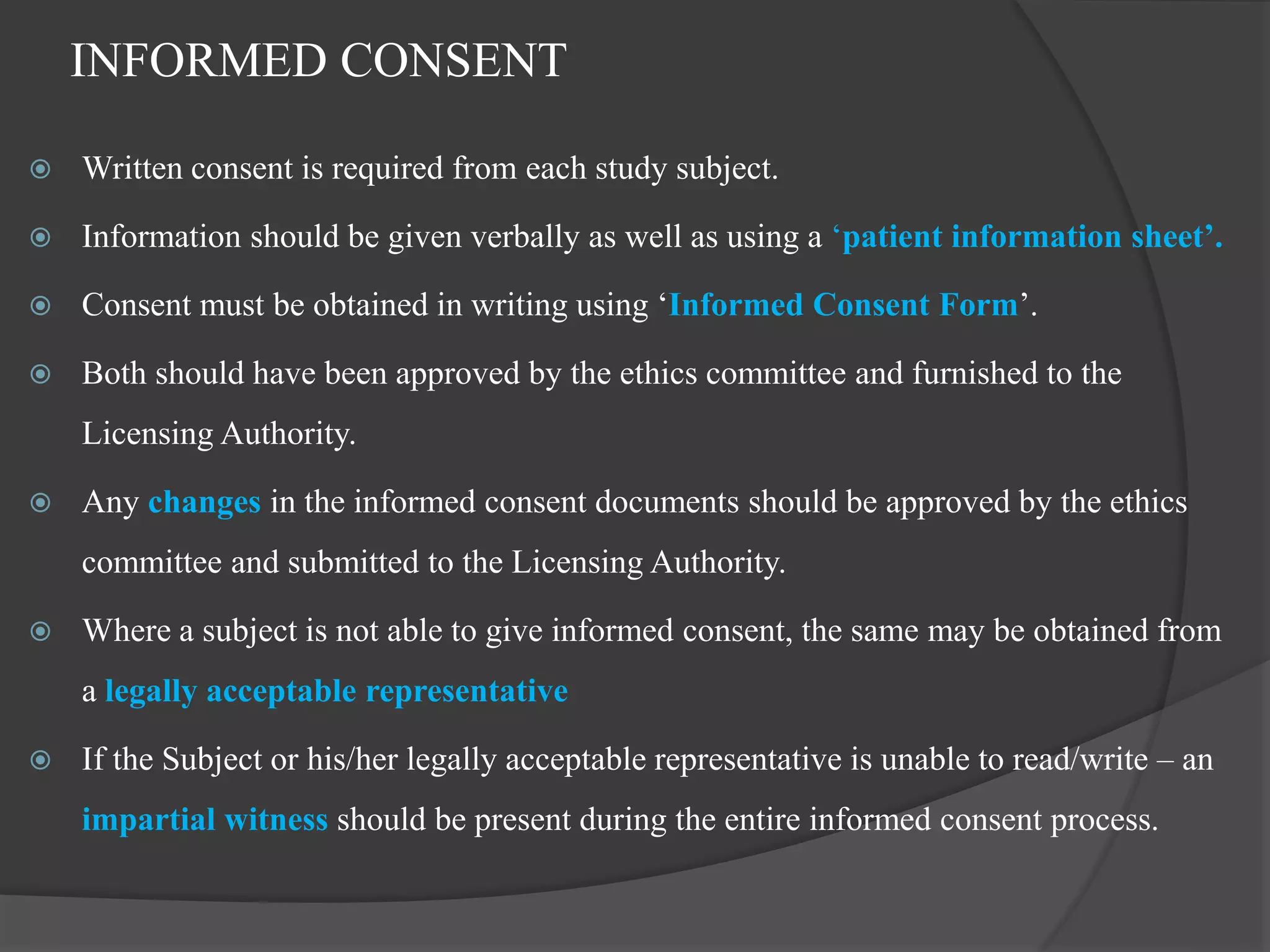The document discusses various topics related to medical ethics and research involving human subjects, including:
1. Historical events that shaped ethical guidelines like the Nuremberg Code and Declaration of Helsinki.
2. The structure and functions of Institutional Ethics Committees, including their role in reviewing research proposals and providing oversight.
3. Key principles of ethical research like informed consent, minimizing risks, and protecting participant privacy and welfare.
4. Issues around informed consent processes and the review of research by ethics committees.











































![Informed Consent Form
Study Title:
Study Number:
Subject’s Initials: _______________ Subject’s Name:_______________
Date of Birth / Age: _________________
(Subject)
(i) I confirm that I have read and understood the information sheet
dated ___ for the above study and have had the opportunity to
ask questions. [ ]
(ii) I understand that my participation in the study is voluntary and
that I am free to withdraw at any time, without giving any
reason, without my medical care or legal rights being affected. [ ]
(iii) I understand that the Sponsor of the clinical trial, others
working on the Sponsor’s behalf, the Ethics Committee and the
regulatory authorities will not need my permission to look at
my health records both in respect of the current study and any
further research that may be conducted in relation to it, even if
I withdraw from the trial. I agree to this access. However, I
understand that my identity will not be revealed in any
information released to third parties or published. [ ]
(iv) I agree not to restrict the use of any data or results that arise
from this study provided such a use is only for scientific
purpose(s) [ ]
(v) I agree to take part in the above study. [ ]
Signature (or Thumb impression) of the Subject/Legally Acceptable Representative:_____________
Date: _____/_____/______
Signatory’s Name: ______________________________________________________
Signature of the Investigator: ____________________________ Date: _____/_____/______
Study Investigator’s Name: __________________________________________________
Signature of the Witness ______________________ Date:_____/_____/_______
Name of the Witness: _______________________________________________________](https://image.slidesharecdn.com/institutionalethicscommitteeinformedconsentuploadedversion-160801172715/75/Institutional-ethics-committee-informed-consent-44-2048.jpg)

